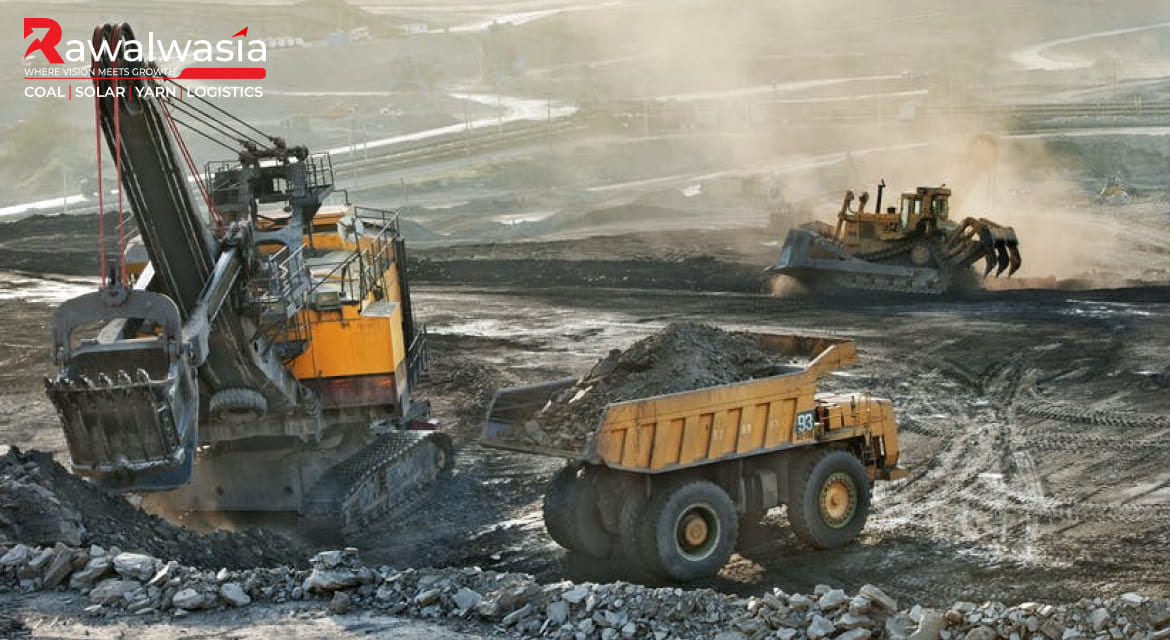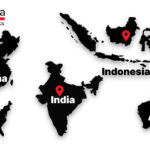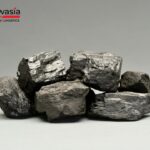Introduction:
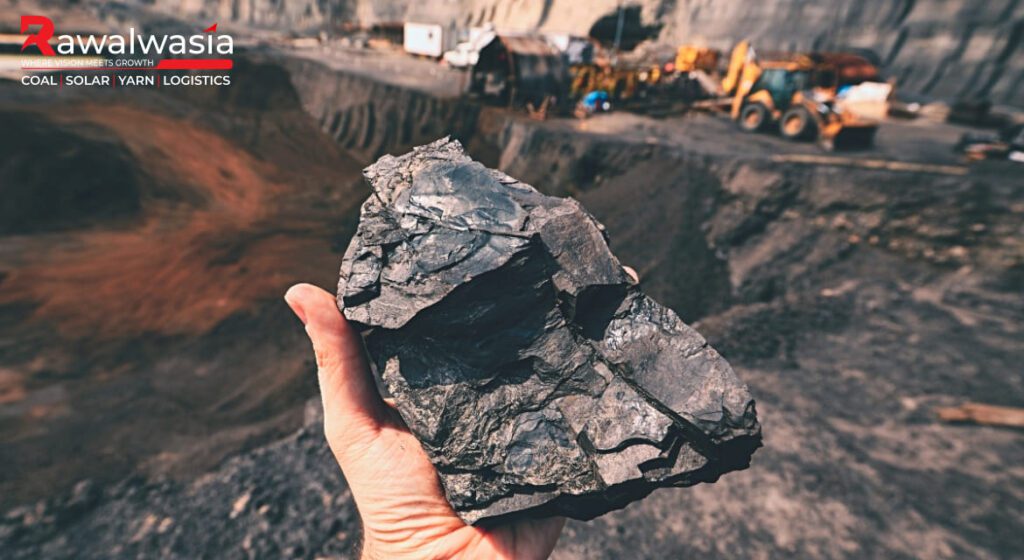
South Africa has long been recognized as one of the leading coal producers in the world, with its coal mining industry playing a crucial role in the country’s economy. This African nation is blessed with abundant coal reserves that have been instrumental in powering its development and contributing significantly to the global coal market. In this blog, we will delve into the fascinating world of South African coal, highlighting its advantages, applications, and the pivotal role of the Rawalwasia Group in supplying this valuable resource to meet global energy demands.
The Genesis of South African Coal
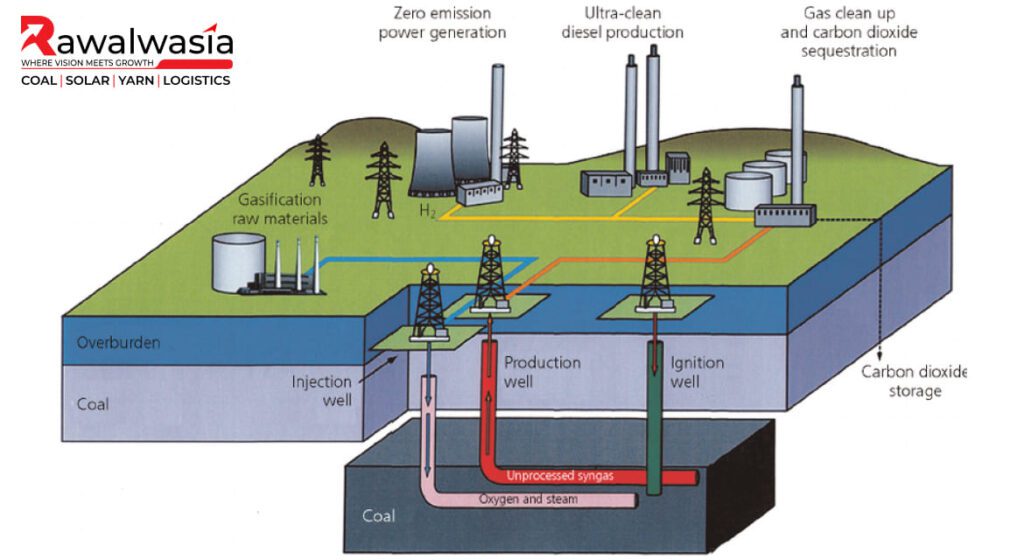
South Africa‘s coal reserves are primarily concentrated in the Mpumalanga, Limpopo, and Free State provinces, with Mpumalanga being the heartland of the country’s coal mining industry. The formation of these coal deposits dates back millions of years to the Carboniferous period when lush vegetation thrived in swampy regions. Over millennia, this organic matter was buried and subjected to heat and pressure, transforming it into the coal seams we mine today.
Advantages of South African Coal
- High-Quality Coal: South African coal is renowned for its high quality, which is characterised by low sulfur content and high calorific value. These attributes make it highly efficient for power generation, reducing the environmental impact of coal combustion.
- Abundant Reserves: South Africa boasts some of the largest coal reserves in the world, estimated at around 30 billion tons. This abundance ensures a stable and reliable supply for domestic and international markets.
- Economic Driver: The coal mining industry significantly contributes to South Africa’s economy, providing employment opportunities and generating substantial revenue through exports. It supports thousands of jobs directly and indirectly, fostering economic growth in mining regions.
- Versatility: South African coal is versatile and suitable for various applications beyond electricity generation. It is used in steel production, cement manufacturing, and various industrial processes, making it a valuable resource for multiple sectors.
- Energy Security: Coal remains a cornerstone of South Africa’s energy mix, providing a reliable and affordable source of electricity. This energy security is crucial for powering industries, homes, and infrastructure development.
The Rawalwasia Group: A Leading Supplier of South African Coal
The Rawalwasia Group has established itself as a prominent player in the global coal market, specializing in supplying high-quality South African coal. With a reputation for reliability and excellence, the group has become a trusted industry partner worldwide. By sourcing coal from South Africa, the Rawalwasia Group ensures a consistent and efficient supply chain, meeting the diverse energy needs of its clients.
Our Product Rage
Applications of South African Coal
- Electricity Generation: South African coal-fired power plants are the backbone of the nation’s electricity generation. Eskom, South Africa’s state-owned electricity supplier, relies heavily on coal to produce a significant portion of the country’s electricity. This reliance on coal has historically ensured energy stability and affordability.
- Steel Production: The steel industry is a significant consumer of South African coal. Coking coal, a bituminous coal, is essential for coke production. It is used in blast furnaces to reduce iron ore into molten iron. South African coal’s high carbon content makes it ideal for this purpose.
- Cement Manufacturing: Coal is a critical component in the cement manufacturing process. It is used as a fuel to heat kilns to the high temperatures required to produce clinker, the key ingredient in cement. South African coal’s high calorific value ensures efficient and cost-effective cement production.
- Industrial Processes: Beyond power generation and heavy industry, South African coal finds applications in various industrial processes, including producing chemicals, paper, and fertilizers. Its versatility and reliability make it an indispensable resource for these industries.
The Role of the Rawalwasia Group in Promoting Sustainable Coal Practices
The Rawalwasia Group is committed to promoting sustainable practices within the coal industry. The group is at the forefront of driving positive change by adhering to stringent environmental standards and supporting initiatives to reduce the carbon footprint of coal mining and use. Their approach includes:
- Sustainable Sourcing: The Rawalwasia Group ensures that its coal is sourced from mines that adhere to best practices in environmental management and social responsibility. This includes engaging with local communities and minimizing the impact on ecosystems.
- Investment in Clean Technologies: The group invests in clean coal technologies and supports research into innovative solutions for reducing emissions and improving energy efficiency. This commitment to innovation is crucial for the long-term sustainability of the coal industry.
Interesting Facts About South African Coal
- Rich History: Coal mining in South Africa dates back to the late 19th century, with the first commercial coal mines established in the Witbank area. This rich history has shaped the country’s industrial development and economic landscape.
- Export Powerhouse: South Africa is a significant coal exporter, supplying markets in Europe, Asia, and the Americas. Richards Bay Coal Terminal, one of the world’s most extensive coal export facilities, is pivotal in facilitating these exports.
- Strategic Reserves: The Waterberg Coalfield in Limpopo province is one of South Africa’s most significant untapped coal reserves. As other reserves become depleted, it is expected to play a crucial role in the country’s future coal production.
- Energy Transition: Despite its reliance on coal, South Africa is committed to transitioning to a more sustainable energy future. The country’s Integrated Resource Plan (IRP) outlines a strategy for increasing renewable energy capacity while maintaining coal as a vital part of the energy mix.
- Technological Advancements: South African coal mines increasingly adopt advanced technologies, such as automation and remote monitoring, to enhance safety and efficiency. These innovations are transforming the coal mining industry and improving productivity.
The Global Impact of South African Coal
South African coal has a profound impact on the global energy landscape. Its high quality and reliability make it a preferred choice for power generation and industrial applications worldwide. Countries that import South African coal benefit from:
- Energy Security: South African coal provides a stable and dependable energy source, reducing reliance on more volatile energy markets and ensuring a consistent electricity supply.
- Economic Growth: Importing South African coal supports economic growth in importing countries by providing affordable energy for industries and infrastructure development.
- Technological Collaboration: South Africa’s coal industry collaborates with international partners on technological advancements and best practices, driving innovation and improving environmental performance.
- Diverse Energy Mix: By incorporating South African coal into their energy mix, countries can achieve a balanced and diversified energy portfolio, reducing vulnerability to supply disruptions.
Conclusion: The Future of South African Coal and the Rawalwasia Group
As we look to the future, South African coal will continue to play a vital role in the global energy landscape. Its high quality, abundant reserves, and versatile applications ensure its relevance for years. However, the industry must navigate the challenges of environmental sustainability and energy transition to remain viable.
The Rawalwasia Group stands at the forefront of these efforts and is committed to supplying high-quality South African coal while promoting sustainable practices and innovation. By prioritizing environmental responsibility, community engagement, and technological advancements, the group is helping to shape a more sustainable and prosperous future for the coal industry.
In conclusion, South African coal is more than just a source of energy; it is a driver of economic growth, a cornerstone of industrial development, and a key player in the global energy market. With the continued efforts of industry leaders like the Rawalwasia Group, we can harness the benefits of this valuable resource while striving towards a more sustainable and balanced energy future.


